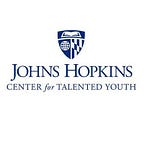Should a student take the SAT in middle school?
By Katy Bowman
At CTY we often hear from parents and educators who want to know if their academically advanced child should take a college entrance exam such as the ACT, PSAT, or SAT — usually taken in high school — when they’re in middle school. Here’s why it’s a good idea:
Gain low-risk early exposure to the test. “Assuming kids are on the college track anyway, the extra practice can be good for them,” says Frank Williams, CTY’s associate director of testing and assessment. Taking a college entrance exam in middle school helps students gain familiarity with the test content, format, and time limitations, Williams says. And it’s good to know the scores won’t stay on the student’s permanent record: The College Board automatically expunges students’ SAT or PSAT scores before high school (unless a family requests to keep the scores on file), and families can request for ACT scores to be removed from a student’s record at any time.
Open the door for new learning adventures. Bright students often thrive when given access to programs that challenge their thinking and nurture their interests. Middle school students who take the ACT, PSAT, or SAT can use qualifying scores to gain admission to academic opportunities such as CTY’s summerand online programs. Students who score exceptionally high on the SAT in middle school can also qualify for CTY’s Study of Exceptional Talent.
Help students get to know themselves better: Test results help give students and their families a sense of the student’s strengths and areas that might need improvement, Williams says.The ACT, PSAT, and SAT all include college and career readiness benchmarks that help families know if their student is on the right track.
Read more:
- College Board(PSAT and SAT)
- ACT
